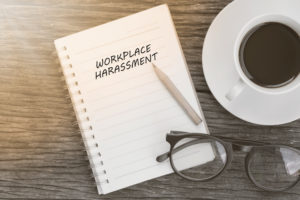By: Jennifer Ward, Esq. & Mark Stephenson, Esq.

In what may be another consequence of the #MeToo movement, New York State has significantly liberalized its anti-discrimination and anti-harassment laws, giving employees a much easier path to bring claims against their employees. Companies with employees based in the State of New York will need to review their employment policies and maintain effective HR practices to enforce appropriate workplace conduct.
On June 19, 2019, the legislature passed Assembly Bill A8421, which amends the New York State Human Rights Law (“NYSHRL”) to follow the plaintiff-friendly New York City Human Rights Law. The changes made in Bill A8421 apply to all forms of discrimination, not merely sexual harassment. The bill awaits Governor Andrew Cuomo’s signature, which is expected to occur. We will be following up on this blog post with additional updates on other critical changes made by this game-changing legislation.
Here are some of the major changes.
- All employers are covered, regardless of how many employees they have. Previously, the NYSHRL applied only to employers with four or more employees. This change goes into effect 180 days after the Governor’s signature for claims filed after that date.
- Discriminatory Harassment will be a separate statutory violation. Historically, Title VII did not explicitly prohibit harassment in the workplace. In subsequent court decisions, harassment based on a person’s membership in a protected class recognized harassment as included in the protections provided by Title VII and state acts. This provision becomes effective 60 days after enactment for claims filed after that date.
- Plaintiff’s will have an easier burden of proof in discrimination cases. Bill A8421 eliminates important evidentiary requirements to show unlawful harassment well-established under Title VII that serve to eliminate frivolous claims.
- Alleged harassment need not be “serious and pervasive.” New York followed federal law to require and employee to show that the alleged harassment was severe and pervasive. Going forward, plaintiffs need only show that the alleged harassment subjected them to “inferior terms, conditions or privileges of employment” because of their membership in a protected class. This provision becomes effective 60 days after enactment for claims filed after that date.
- Comparable employees are not needed. Bill A8421 eliminates the evidentiary requirement that a plaintiff identify an individual who is not a member of the protected class who received more favorable treatment. This provision becomes effective 60 days after enactment for claims filed after that date.
- The Faragher-Ellerth Defense is no longer available. In these companion cases, the U.S. Supreme Court created a valuable defense for employers accused of allowing unlawful harassment. Under Title VII, an employer will be held to be liable if shows that (1) it attempted to prevent and correct the harassing conduct and (2) the employee unreasonably failed to take advantage of preventative and corrective remedies. Bill A8421 eliminates this defense (although it remains available in Title VII cases). This provision becomes effective 60 days after enactment for claims filed after that date.
- Employers affirmative defenses going forward are limited. Bill A8421 limits an employer’s ability to affirmatively defend itself and avoid liability. It’s sole affirmative defense available to a discriminatory harassment claim is to prove that “the harassing conduct does not rise above the level of what a reasonable victim of discrimination would consider petty slights or trivial inconveniences.” This provision becomes effective 60 days after enactment for claims filed after that date.
- Plaintiffs now can recover punitive damages and “shall” be awarded attorney fees. In cases brought against “private employers,” a plaintiff can now recover punitive damages. A private employer is defined to include “any person, company, corporation, labor organization or association. It shall not include the state or any local subdivision thereof, or any state or local department, agency, board or commission.” Prior to Bill A8421, an award of attorney fees was made in the sound discretion of the court. The bill makes an award mandatory to a prevailing plaintiff. A prevailing plaintiff may be awarded attorney fees only if it can show that plaintiff’s action was filed or continued in bad faith. This provision becomes effective 60 days after enactment for claims filed after that date.
In Part Two, we discuss new restrictions placed by Bill A8421 on non-disclosure agreements and how those limitations relate to recent federal legislation.
StraighforWARD Legal Advice:
Employers in the State of New York should take this time to review their employee handbooks and employment contracts to be sure they are in compliance with Bill A8412. As previously mentioned, this bill is very employee friendly, so New York employers should immediately seek the advice of counsel who specializes in labor and employment matters to make sure all bases are covered. Jennifer Ward is the Managing Partner of Ward Law, LLC and is licensed in New York, New Jersey and Pennsylvania. Mark Stephenson serves as Of Counsel at Ward Law, LLC and practices Labor & Employment law throughout Pennsylvania and New Jersey. Their clients range from small local businesses to large national companies and they provide daily advice and guidance on all matters involving Labor & Employment Law.
Mark can be reached at mstephenson@thewardlaw.com or 215-647-6614 or Click Here.
Jennifer can be reached at jward@thewardlaw.com or 215-647-6601 or Click Here.
